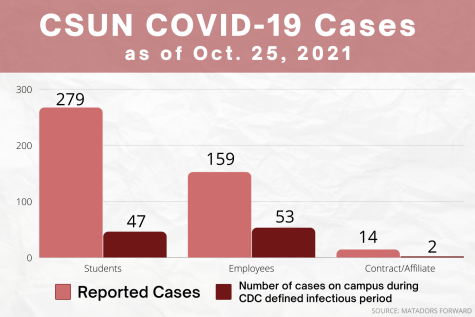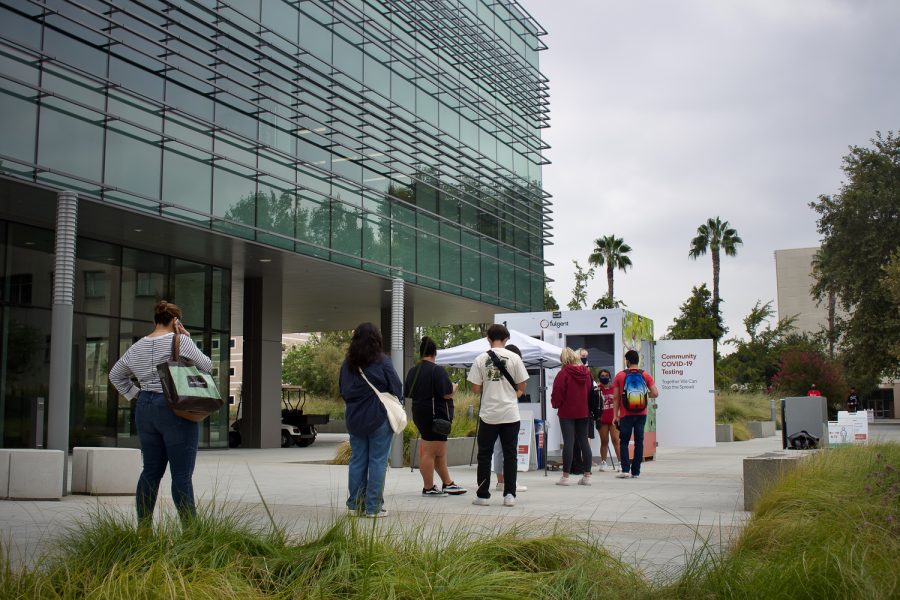COVID Counts: How CSUN gathers and reports COVID-19 data
Students line up to get COVID-19 test on CSUN’s campus on Sept. 29. 2021 in Northridge, Calif.
October 28, 2021
Since March 2020, the Klotz Student Health Center and CSUN Human Resources have collected COVID-19 data from students living on and off-campus, employees, faculty and independent contractors. Now that some classes have resumed in person, a daily health screening and proof of vaccination, or a negative test, is required for anyone who visits campus.
Only about 1% of CSUN’s population, including faculty and staff, has been infected with COVID-19 since the beginning of the semester.
According to CSUN’s Health and Safety website as of Oct. 25, there have been 279 students, 159 employees and 14 independent contractors who have tested positive for COVID-19 since March 2020. Anyone who has possibly been exposed to these cases are notified.

The California Department of Public Health requires universities and workplaces to report a COVID-19 case if there are more than three related cases within 14 days. CDPH considers more than three cases among individuals of different households to be an outbreak.
Individuals who suspect they may have been infected can get tested through one of two Fulgent testing booths on campus. One booth is located on the east side of campus, behind the Associated Students offices, and the other is located on the west side, next to the Extended University Commons.
Appointments for COVID-19 testing at either of these sites can be scheduled through the Student Health Portal. The Klotz Student Health Center also offers testing for symptomatic individuals in an isolated room.
Members of the CSUN community are encouraged to self-report their positive COVID-19 diagnoses through online surveys, on-campus Fulgent testing sites or mail-in testing kits. While the Klotz Center manages the student reports, Human Resources oversees the cases among employees.
If the Klotz Center or Human Resources get notified of a positive COVID-19 case or recent exposure, information about where on campus the individual has visited in the past day is collected. This allows the teams to begin the contact tracing and reporting process. The self-report collects basic identifying information, and asks whether or not the person has been in contact with one or more people for more than 15 minutes in the last 24 hours.
The Matadors Forward website created separate self-reporting surveys for students, faculty, staff and visitors to report if they have been exposed to COVID-19.
According to the university director of media relations Carmen Ramos Chandler, there are no current outbreaks.
